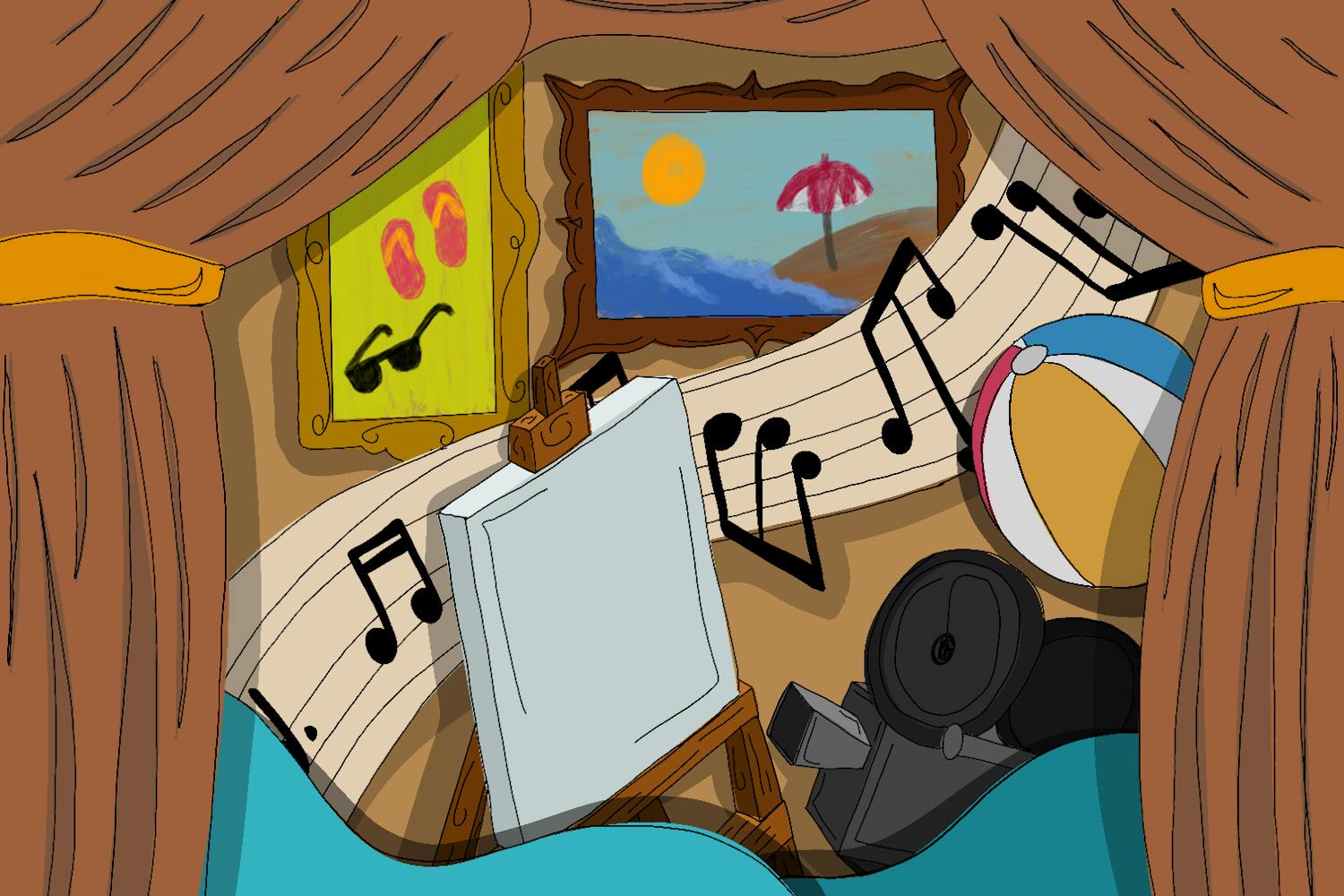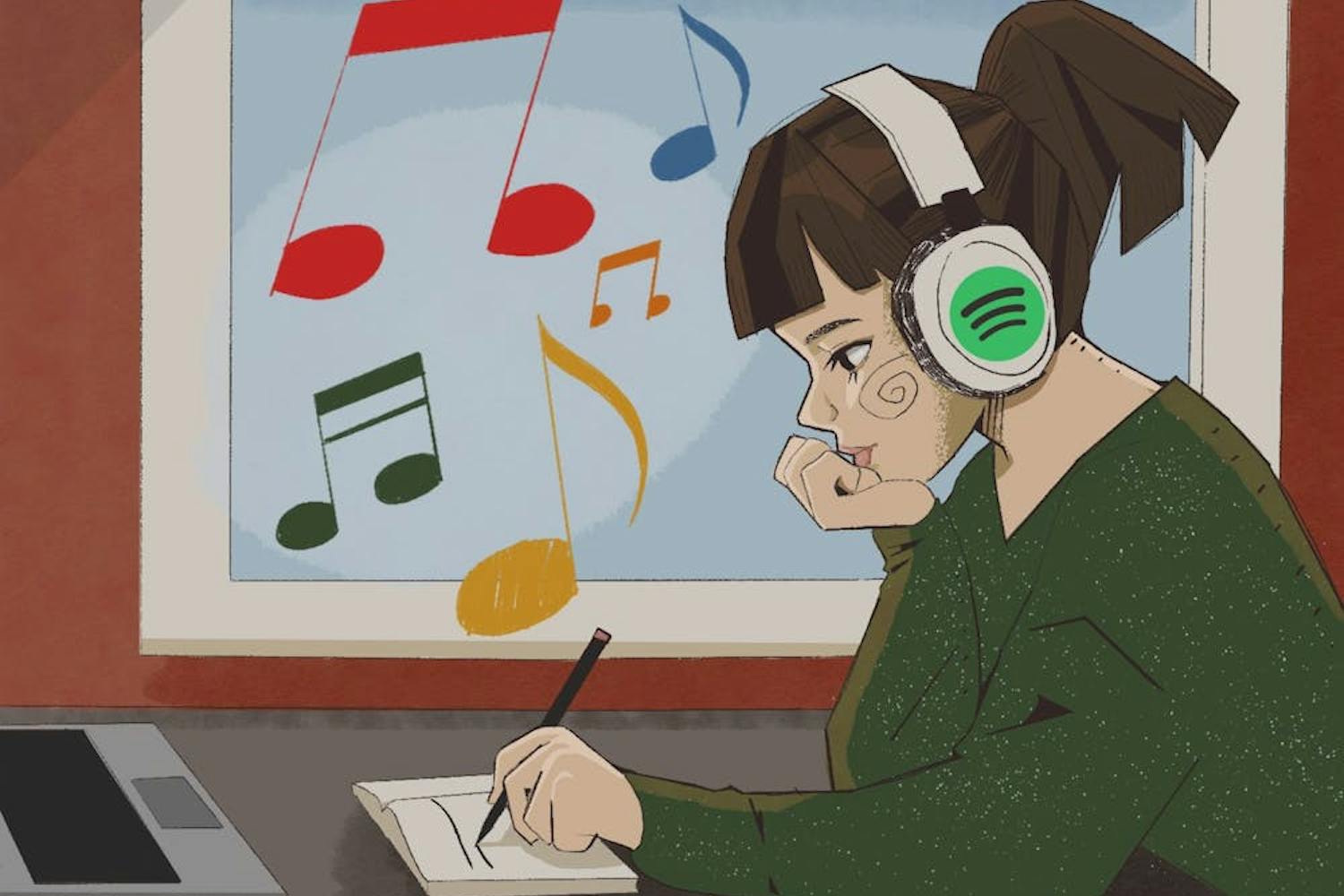Kendrick Lamar will be remembered as the best rapper of this generation. His competition knows it, his listeners know it, his predecessors know it and, perhaps most importantly, he knows it. In Lamar's milestone verse on Big Sean’s 2013 track, “Control”, he shames his competition with a ruthless taunt of their inability to contend with him.
Among the affronted are talented rappers like J. Cole, A$AP Rocky and Big K.R.I.T., who are directly addressed with the lines, “What is competition? / I'm trying to raise the bar high. / Who tryna jump and get it? / You're better off trying to skydive.”
There is, however, a noticeable omission from his list. Macklemore, the artist behind the most iTunes downloaded album, "The Heist," has skyrocketed into a level of popularity that few of Lamar’s rivals could boast, yet Lamar felt no need to mention him. Probably because he realizes that Macklemore is terrible.
Although this may seem obvious to those acquainted with music, apparently someone didn’t get the memo, as evidenced by Macklemore’s 2014 Grammy nominations for album of the year for "The Heist," song of the year for “Same Love,” best new artist and best rap performance for “Thrift Shop.”
Kendrick Lamar will also be strutting down the red carpet in Los Angeles on Jan. 26 as a nominee for album of the year with "good kid, m.A.A.d city," best rap performance for “Swimming Pools (Drank)” and best new artist, meaning that either Lamar or Macklemore is likely to come out of Staples Center with a Grammy in hand.
Under normal circumstances, I wouldn’t take issue with something like the Grammys, as I’ve never placed too much gravity in award shows anyway. However, I take serious issue with putting Macklemore in the same category as Kendrick Lamar, as the 56th Annual Grammy Awards have chosen to do. That is just criminal.
Some may call me harsh, but from my perspective, Macklemore panders to a liberal, white, suburban audience that desperately wants his music to be better than it really is.
“Same Love” warmed the hearts of millions across this country who support the LGBTQ community. That alone doesn’t make it a good song. Instead of presenting an opinion in an interesting or unique way, he wastes five minutes and 20 seconds spouting the conventional arguments for same-sex marriage, rife with generalizations and cringe-worthy preaching.
“No law is gonna change us / We have to change us / Whatever God you believe in / We come from the same one / Strip away the fear / Underneath it's all the same love / About time that we raised up”
Cue insuppressible nausea. I'm supportive of marriage equality, but, dear Lord, that's an awful verse. Does this man have no conception of subtlety?
Let’s look at another song that hung around the top of the US Billboard. “Swimming Pools,” by Kendrick Lamar, a nominee for best rap performance. At face value, the song is just another catchy club banger that was blasted in radios across the country for a couple months.
But, after a few listens, when the lyrics aren’t so overshadowed by the undeniably great hook, you become aware of the true meaning of the song. It’s not a "Ke$ha-esque" song about raucous intoxication.
Instead, it is an examination of Lamar’s concern with the way in which society approaches alcohol, ranging from the peer pressure to partake in excessive drunkenness to his own grandfather's death from alcoholism.
He veils incisive social commentary in a song that would be completely appropriate to play in a setting that is partaking in the very things he is questioning, like a college party. Thoughtful, without being sermonizing. Subtle, yet profound.
Lamar is like a college professor of this genre, well versed in its history, structure and the importance of making the listener work for a message.
Macklemore is like a first-year liberal arts student who thinks that rap is basically having a stoned political conversation that rhymes over a mediocre beat.
Lamar’s 2013 album, the critically acclaimed “good kid, m.A.A.d city” is socially conscious and musically brilliant the whole way through. Tracks like “Backseat Freestyle” and “Money Trees” might give the impression that Lamar is simply another young rapper entranced in the debauched lifestyle that other young rappers glorify.
In reality, it’s a concept album chronicling his misled youth that challenges that very way of thinking as juvenile.
Macklemore is still ignorant of the fact that rap, or in a broader sense, art, is not about being overt. "The Heist" has lackluster songs that he did not seem to put much effort into the entire way through. Supposed standouts like “Wing$” have no nuance and no depth.
I don’t want to listen to a mundane anecdote about a shoe that tells me materialism is bad. Most musicians hold themselves to a higher standard than the simplicity exhibited by Macklemore. Like most of his tracks, you are left with a feeling that something was missing at the conclusion. Some may call his style straight-forward. I call it downright lazy; proof that he is no smarter than the “gangsters” his condescending fans assert his superiority over.
Macklemore may be politically correct, he may be accessible to upper-middle class suburbia and I’m willing to bet he’s a very humble guy. From a musical perspective, Macklemore does not deserve to be competing with Kendrick Lamar in anything. Not a single bit.
Reach the columnist at bjmurph2@asu.edu or follow him on Twitter at @MurphJamin



